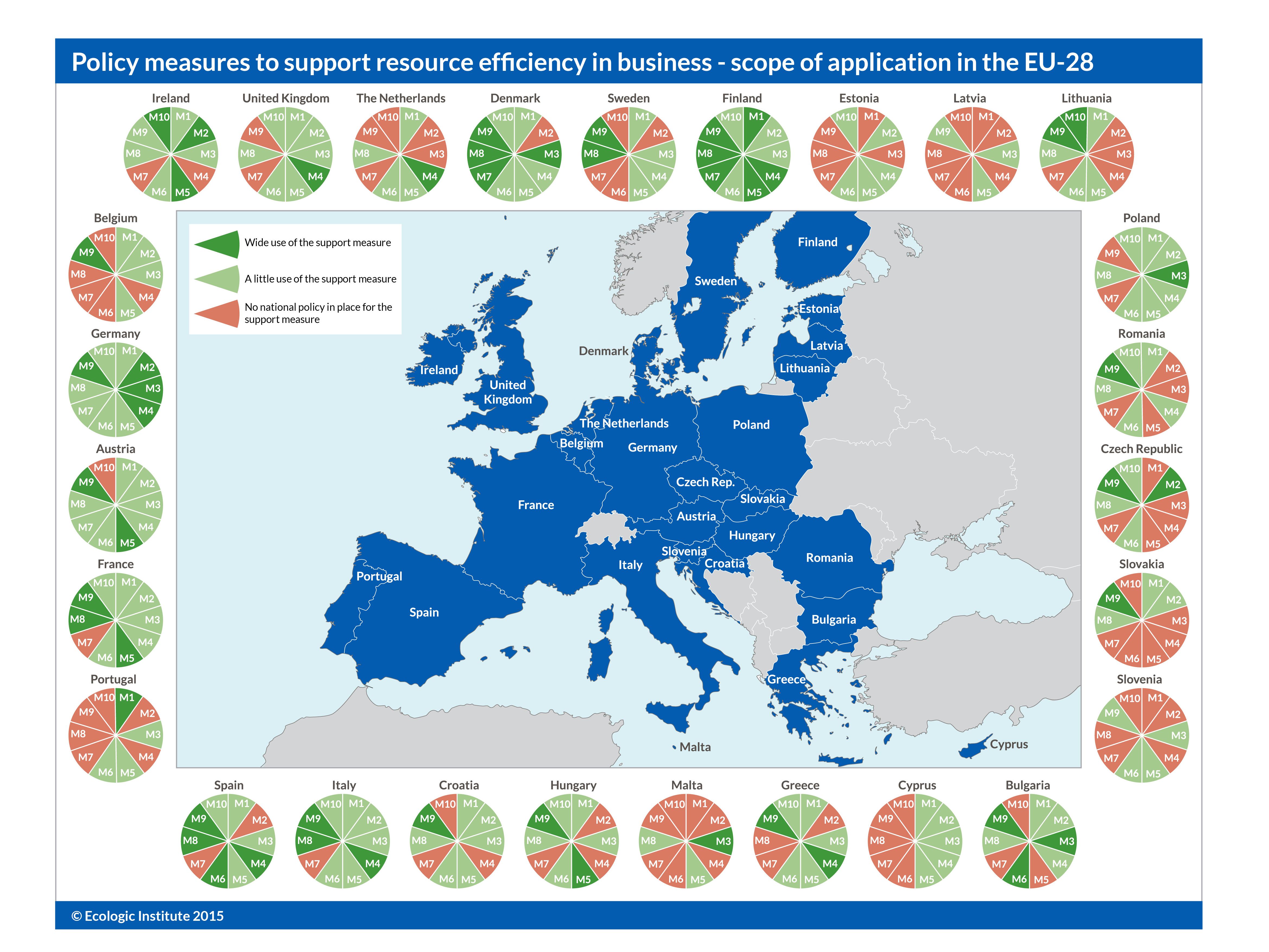Business resource efficiency is seen by the EU as a key to a sustainable future of a competitive European economy. Increasing resource efficiency of business aids to reduce waste, decrease the pressure on the environment, increase the competitiveness of European markets and to create jobs. Besides, increasing resource efficiency can help companies to minimize their costs. The main objective of the project is to assist Member States in improving and fostering policies to support businesses to become more resource efficient. A particular focus is set on SMEs and the manufacturing sector.
A range of factors hinder companies to adopt resource efficient technologies and procedures. These factors include for example a lack of awareness, know-how and financial resources as well as unfavorable policy incentives. The project analyses existing policy measures which help companies in EU member states to overcome these barriers and thereby support them in increasing their resource efficiency.
Member States use a variety of approaches to support business resource efficiency, ranging from voluntary to regulatory. Examples are consultation services, financial support for R&D, and minimum efficiency standards for certain products. The project will identify 10 of the most important measures that EU Member States can put in place to support or inspire businesses to become more resource efficient. Next the project assesses the scope of application of these measures in the 28 EU Member States. On this basis, the strengths and weaknesses of application as well as the potential for improved application of the measures will be explored. With the gathered information, the project aims to
- inform national authorities on the potential of measures and to motivate them for further action,
- advance the implementation of EU policy.
In the analysis, special attention is given on how measures are employed in different Member State contexts, and what this means for the transferability and improvement of measures.
A presentation on first findings given in the context of the 4th Expert Group Meeting on the "Greening of the European Semester", 7 September 2015, in Brussels can be accessed here.
The results of the analysis are available for download in a final report, annexes and an executive summary.
The project was carried out in the EU context of the Roadmap for a Resource Efficient Europe, the Circular Economy Communication, currently under revision, and the Green Action Plan for SMEs.




